Related Research Articles

Gwen Harwood was an Australian poet and librettist. Harwood is regarded as one of Australia's finest poets, publishing over 420 works, including 386 poems and 13 librettos. She won numerous poetry awards and prizes, and one of Australia's most significant poetry prizes, the Gwen Harwood Poetry Prize is named for her. Her work is commonly studied in schools and university courses.

Alec Derwent Hope was an Australian poet and essayist known for his satirical slant. He was also a critic, teacher and academic. He was referred to in an American journal as "the 20th century's greatest 18th-century poet".
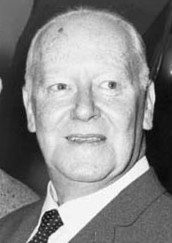
Kenneth Adolphe Slessor was an Australian poet, journalist and official war correspondent in World War II. He was one of Australia's leading poets, notable particularly for the absorption of modernist influences into Australian poetry. The Kenneth Slessor Prize for Poetry is named after him.
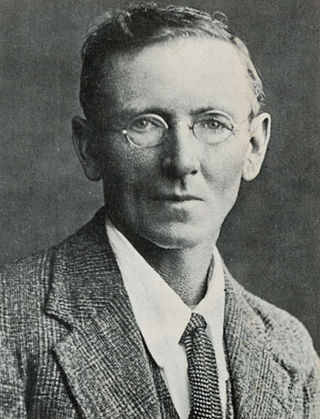
John Shaw Neilson was an Australian poet. Slightly built, for most of his life he worked as a labourer, fruit-picking, clearing scrub, navvying and working in quarries, and, after 1928, working as a messenger with the Country Roads Board in Melbourne. Largely untrained and only basically educated, Neilson became known as one of Australia's finest lyric poets, who wrote a great deal about the natural world, and the beauty in it.
Geoffrey Donald Page is an Australian poet, translator, teacher and jazz enthusiast.

John Ernest Tranter was an Australian poet, publisher and editor. He published more than twenty books of poetry; devising, with Jan Garrett, the long running ABC radio program Books and Writing; and founding in 1997 the internet quarterly literary magazine Jacket which he published and edited until 2010, when he gave it to the University of Pennsylvania.
Peter David Goldsworthy is an Australian writer and medical practitioner. He has won major awards for his short stories, poetry, novels, and opera libretti. He is known for his novels Honk If You Are Jesus, and Three Dog Night. His 1989 novel Maestro is being made into an upcoming film.
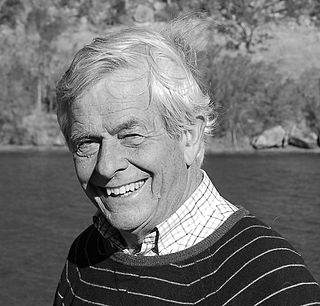
Christopher Keith Wallace-Crabbe is an Australian poet and emeritus professor in the Australian Centre, University of Melbourne.

Leslie Allan Murray was an Australian poet, anthologist and critic. His career spanned over 40 years and he published nearly 30 volumes of poetry as well as two verse novels and collections of his prose writings.
The Kenneth Slessor Prize for Poetry is awarded annually as part of the New South Wales Premier's Literary Awards for a book of collected poems or for a single poem of substantial length published in book form. It is named after Kenneth Slessor (1901–1971).
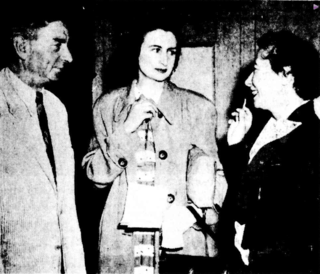
Rosemary de Brissac Dobson, AO was an Australian poet, who was also an illustrator, editor and anthologist. She published fourteen volumes of poetry, was published in almost every annual volume of Australian Poetry and has been translated into French and other languages.
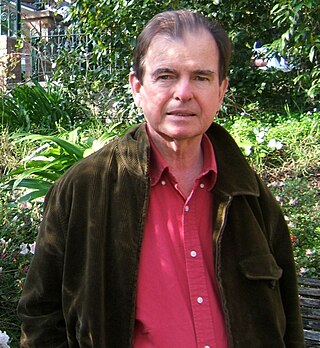
Geoffrey Lehmann is an Australian poet, children's writer, and tax lawyer.
Robert Adamson was an Australian poet and publisher.
Rhyll McMaster is a contemporary Australian poet and novelist. She has worked as a secretary, a nurse and a sheep farmer. She now lives in Sydney and has written full-time since 2000. She is a recipient of the Barbara Jefferis Award.
Stephen Edgar is an Australian poet, editor and indexer.
Timoshenko Aslanides was an Australian poet.
Peter Boyle, is an Australian poet and translator.
Elizabeth Campbell is an Australian poet.
Kate Llewellyn is an Australian poet, author, diarist and travel writer.
"How M'Dougal Topped The Score" (1898) is a poem by Australian poet Thos. E. Spencer.
References
- ↑ "Leaves of Grass". PN Review Online.
- ↑ Internationales Literaturfestival
- ↑ "Robert Gray (poet) - Australia - Poetry International". www.poetryinternationalweb.net. Retrieved 8 November 2018.
- ↑ Langford, Martin. "Cumulus: Robert Gray and the Visual Arts of Poetry". Meanjin. Retrieved 13 December 2012.
- ↑ "Adelaide Festival Awards for Literature – Past Literary Award Winners". State Library of South Australia. Retrieved 18 April 2024.
- ↑ "Poet palely loitering".